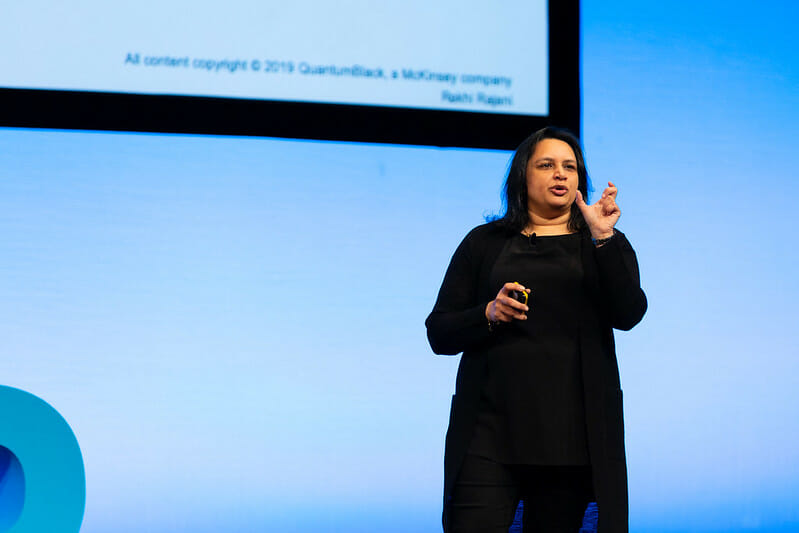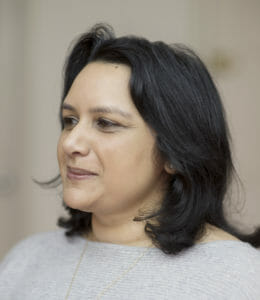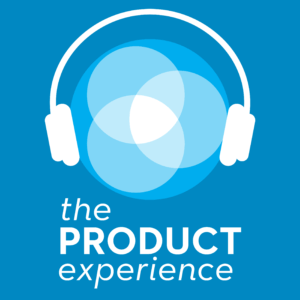within Read more »
The post Building diverse product teams: Why it matters and how to achieve it appeared first on Mind the Product.

Product Management Confabulation
What Product Managers are talking about.
within Read more »
The post Building diverse product teams: Why it matters and how to achieve it appeared first on Mind the Product.
In celebration of World Product Day we thought we should look at what it means to be a global product manager. Think about the many challenges of managing global products – how do you address the differences between users in different regions, for instance? And how do you ensure success? To get some answers, we [...] Read more »
The post What does it mean to be a global product manager? appeared first on Mind the Product.
In this #mtpcon SF+Americas 2022 keynote session, Farai Madzima, UX Manager at Shopify explains that diverse teams are the most effective. By continually prioritising inclusivity, starting today, you can boost safety and belonging, trust and vulnerability, and start to influence change in the tech industry. [...] Read more »
The post Working with strangers, well by Farai Madzima appeared first on Mind the Product.
Today is Global Accessibility Awareness Day. But why should Product Managers care about accessibility? In this post, we'll tell you a quick story and the tips learned… [...] Read more »
The post Making your product more accessible appeared first on Mind the Product.
So many missed that a profanity filter would prevent the residents of Scunthorpe from creating an AOL account, that the use of sat navs could ruin previously quiet streets for their residents, or that a social network for university students would end up interfering with democracy. Building responsibly isn’t a headline topic for every product manager. Mozilla [...]
The post Responsible Thinking for Product Managers – Expert Advice and Steps for Success appeared first on Mind the Product.
When I joined TransferWise one of the things I wanted to bring to the mission was my experience building strong teams, because when you’re building best-in-class products that solve customers problems at scale you need high performing teams that can work quickly and efficiently. I’ve now been with the company for six months and it [...]
The post A Product Manager’s Approach to Growing Teams appeared first on Mind the Product.
As a Psychologist, Rakhi Rajani, explores the intersection between human and machine intelligence. In this MTP Engage Manchester talk, she covers how we can go about creating cognitively diverse teams to tackle the big questions of the future.
Key points:
The legal system, the economy, and the environment are just a few of the things that have changed as a result of advances in technology. As a result, the way we interact is changing too, along with social norms. For example:
All these things affect who we are, how we think, and what we do. They also affect the type of questions we ask, and the teams that we need to find the answers.
Rakhi explains that she and her team spend a lot of time thinking about building new civilisations on Mars. As humans, she tells us, we are very good saying, “I did this here and it worked, so I am going to do the same thing over there” – something we do because it uses the most recent frame of reference we have.
When it comes to teams, we can’t simply take this approach when it comes to hiring people. We need different mindsets and perspectives from outside traditional academic disciplines.
The mindsets we need to tackle some of these questions are:
Additionally, companies like to put people into boxes – product manager, designer, engineer. This happens because it makes it easier for us to make sense of the world, but Rakhi argues that we need to go beyond these boxes to build the successful teams. She hires musicians and artists based on their brain structures and how they think about problems.

Leaders also add to the mix, imposing constraints on people based on what we know they can do versus what they can actually do. Rakhi goes on to highlight two areas that block cognitive diversity if we don’t address them:
Rakhi built a digital lab from scratch, hiring 120 people in 18 months from 4,000 CVs. She shares her learnings from that time:
Finally, Rakhi leaves us with a few tips for building teams for an uncertain future. First, leave your discipline baggage at the door. Next, remove functional bias and cherish the people who disagree. Finally, make space and curb the pace because diverse teams need to find their own language and rituals.
The post Creating Cognitively Diverse Teams by Rakhi Rajani appeared first on Mind the Product.

At MTP Engage Manchester (February 2020), Rakhi Rajani (Associate Partner at QuantumBlack) joined us for our first-ever live podcast recording. Talking to Rakhi we learned why Engage organiser Adam Warburton called her the smartest person he’s ever worked with as we discussed building teams, hiring at scale, when you need troublemakers, and why she had recruiters ask candidates what their teachers said about them at parent/teacher evening.
Quote of the Episode
To me a cognitively diverse team is one where you look for folks who process information differently. I’m looking for story-tellers, naysayers, people who are dreamers, reflectors, fighters. People who are approaching the world from a different point of view, people who think about information in different ways. And the ability to bring those people together in a team situation, where normally we just go “I just want cultural fit, find me people like that person over there”, which often ends up in stagnant teams.
Links mentioned in this episode
The Product Experience is hosted by Lily Smith and Randy Silver.
Lily enjoys working as a consultant product manager with early-stage and growing startups and as a mentor to other product managers. Lily has spent 13 years in the tech industry working mainly with startups in the SaaS and mobile space. She has worked on a diverse range of products – leading the product teams through discovery, prototyping, testing and delivery. Lily also founded ProductTank in Bristol, the Product Managers’ meetup with regular events and talks on Product now with 800+ members and growing. Now the Product Director at Symec, Lily also runs ProductCamp in Bristol and Bath.
A recovering music journalist and editor, Randy has been working as an interactive producer and product manager across the US and UK for nearly 20 years. After launching Amazon’s music stores in the US and UK, Randy has worked with museums and arts groups, online education, media and entertainment, retail and financial services. He’s held Head of Product roles at HSBC and Sainsbury’s, where he also directed their 100+-person product community. Now a trainer, Discovery and Leadership consultant, he’s spoken at Mind the Product Engage (Hamburg and Manchester), the Business of Software, Turing Festival, a number of ProductTanks (London, Zurich, Manchester, Birmingham, Bristol, Oxford, and Brighton… so far!) and at conferences across the US and Europe.

Our theme music is from Hamburg-based Pau, featuring ProductTank Hamburg’s own Arne Kittler on bass. Listen to more on their Facebook page
Have you seen someone give a great talk? Suggest a guest to us here
The post Cognitively Diverse Teams – Live from MTP Engage Manchester – Rakhi Rajani on The Product Experience appeared first on Mind the Product.
It’s not rocket science that awesome products come from awesome teams, so what’s the key to creating and managing a team that’s designed for maximum impact?
Here, taking advice from a number of product pros, we look at a selection of ways to build product teams and empower them to achieve success.
In his 2019 #mtpcon London talk – High Performing Teams, Richard Banfield discussed a variety of things that help to drive success in product teams, one of which stands out because of its simplicity – choose a diverse group of people.
Richard said that a team made up of people with lots of different experiences, knowledge, and skills shows everyone that it’s alright to be different.
What’s more, it indicates that those who stand out or are different, are embraced and that their opinions are respected.
Of course, sharing may be more complicated because not everyone has the same frames of reference, but overall the benefits far outweigh any communication challenges.
In fact, studies such as the 2015 McKinsey report – Diversity Matters, have shown that working on a team with people who are different from you can challenge your thinking in such a way that it can actually help to sharpen up its performance.
For a team to be successful, it must have the right conditions to thrive in. This is the advice of Ezinne Udezue.
In her 2019 #mtpcon London keynote – Helping Teams to be Successful, she explained that to create the right conditions for your team, you must:

During an early episode of Mindset, Mind the Product’s, Rosemary King and Head of Products at Allplants, Laurel Gray discussed the importance of developing psychological safety to enable success and happiness within a team.
Laurel suggested that product managers can help to cultivate psychological safety by first talking about it openly. Without doing this, people might often say they feel psychologically safe, without really knowing what it is or why it’s important.
She recommended looking into Google’s Project Aristotle – a study conducted by Google to better understand the traits of its highest performing teams. The findings indicated that it wasn’t the number of PhDs, or even the number of hard skills on the team, that drove performance, but rather whether or not the teams demonstrated characteristics of psychological safety.
With a culture of psychological safety firmly in place, people have the courage to disagree, share ideas, and to feel safe to make mistakes without blame or recrimination, all of which can have an incredible impact on the performance of a team.
In her 2019 #mtpcon London talk – The Secret Sauce to Hiring Great Product People, Kate Leto talked about getting your team right from the start.
We all know that bad hiring decisions can be costly and Kate explained that, while we often think about product/market fit, we rarely think about person-organisation fit. One way to build a successful team is, therefore, to hire people who we know will fit into that team well.
Another, she told us, is to create the right role for your team, and your organisation, by not writing a job description that’s simply cut and pasted from another.

Instead, she recommended creating a job description covering:
By building roles in this way, you stand a better chance of hiring someone who is the right fit for the reality of the role.
Once you have your team in place, there’s then work to be done to transition that team from good to great. And, as Christina Wodtke explained during her 2018 #mtpcon San Francisco keynote, a team will really only become a team when it has all of the following:
From here, the foundations can be set for teams to move from a “team”, to a “learning team” and finally, to a “mindful team”.
Of course, the points above really only dip a toe into the many ways you can build a successful product team. You’ll find plenty of advice sitting with the product people in our incredible community so reach out and ask others what they suggest. We’d love to know your thoughts on this subject too. What, in your opinion, sets a product team up for success? Tell us what you know, what you’ve tried, what’s worked and what hasn’t – hit discuss this article below.
You can also deep-dive into the subject at MTP Engage Hamburg on June 25th, where Christina Wodtke will be leading her workshop – Designing Product Teams with Intention: Crafting your Successful Team.
Christina’s past work includes re-design and initial product offerings with LinkedIn, MySpace, Zynga, Yahoo!, and others, as well as founding three startups, an online design magazine called Boxes and Arrows, and co-founding the Information Architecture Institute. She is currently a Lecturer at Stanford in the HCI Group in the Computer Science department.

With all that experience under her belt, she knows how to design and inspire teams to work together and this workshop is an intimate opportunity to learn her proven results-forward methodology.
During the workshop, Christina will take you into the factors that inform strategically crafted product teams, and address the core question: why do some product teams break while others thrive?
You will explore:
The post How do you Build a Winning Product Team? appeared first on Mind the Product.